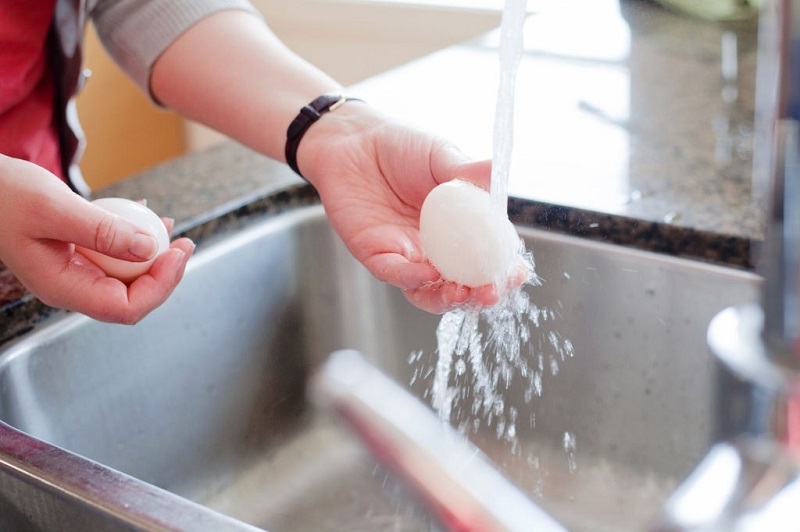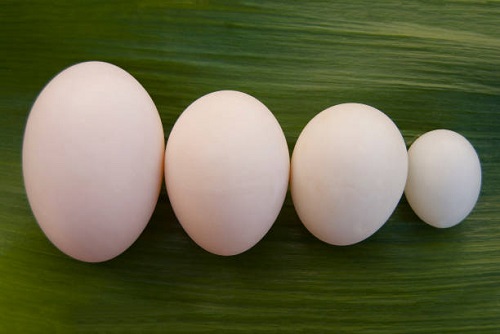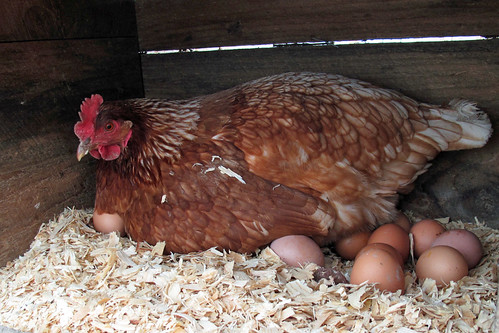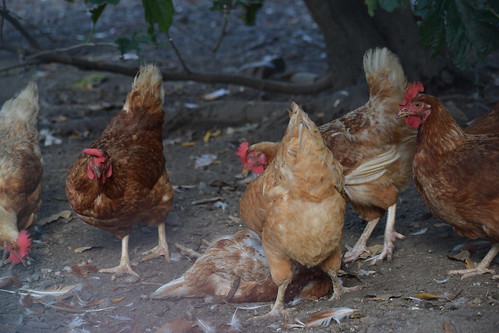The issue of whether or not to wash your home-laid eggs is still raging on. Some chicken owners insist on washing their eggs upon collection, while others are not concerned about doing the same at all. Most folks are fairly laid back when it comes to eggs from their own backyard chickens, as they have control over the source. But there is now a growing contingent who prefers to be safe rather than sorry.
The egg washing debate has also been likened to some farmers’ habits of washing their vegetables before use. Many people choose to eat unwashed vegetables straight from their gardens if they farm organically – but of course, raw milk and raw eggs can harbor different and potentially more harmful strains of pathogens. A lot of the time, these choices simply boil down to personal preference.
Yet for some, this may seem like a non-issue altogether. Just give your eggs a good scrub and tuck in or sell them, right? Interestingly, that isn’t all there is to the process. Washing your eggs involves more effort than you may think, and if you have purchased commercial eggs, the supplier will likely have cleaned them already, so you needn’t worry too much.
How Eggs Keep Bacteria Out
Egg shells are made of a porous material, which could in itself let bacteria and other unwanted agents through the shell and into the egg itself. However, eggs are intelligently designed with a thin membrane coating around them called the ‘bloom’. This ingenious layer keeps potential chicks and their developmental environments safe and sanitary as they develop, and even if your eggs are not fertilized, this membrane will still be in place.
It is for this reason that bacteria have a difficult time making their way into a dry egg. However, if you wash your eggs, you risk removing the bloom and inviting bacteria to make their way through the porous shell and into the egg. Washing eggs in cool or cold water can also create a vacuum that physically pulls unwanted bacteria into the egg even faster than would happen in a typical scenario.
With that said, not all bacteria are inherently dangerous. The primary issue here is that you simply cannot know which bacteria happen to be lurking on the shells of any egg you choose to wash, or to leave dry. This is why it is usually better to be safe than sorry and avoid washing your eggs altogether.
How to Keep Eggs Clean
So, what can you do about dirty eggs that need to be cleaned? The simplest solution is to prevent the eggs from becoming soiled in the first place. This can be achieved in a number of ways, including:
- Cleaning your chickens’ nesting boxes frequently. Many farmers find that keeping a good supply of fresh shavings and straw in each nesting box is very effective in keeping eggs clean without any washing required. This will also help to ensure that your chickens remain healthy.
- Position roosting areas higher than nesting boxes. Chickens like to roost as high up in their coop as possible. If you position roosting areas higher than nesting boxes it will stop them from roosting in their boxes and soiling them. This should make your eggs cleaner in the long run.
How to Clean Soiled Eggs Safely
Even if your boxes are spotless, you might still end up dealing with dirty eggs from time to time. Your best course of action here is to clean them as carefully as you can. Your options include:
- Using sandpaper. Use a very fine grit sandpaper to carefully sand off any soiled or dirty areas on your eggs. This does indeed damage the bloom coating, but since the egg will remain dry, the ‘vacuum effect’ will not be as pronounced and bacteria will not be able to enter it.
- Using warm or hot water. If you must wash your eggs, you should do so in water that is roughly 20 degrees or warmer than the egg itself. The warmer the better! Do not allow your eggs to soak in the water, as this could start cooking them. Rather dampen them until the dirty spots have softened, and then wipe them away with a soft cloth. It’s also important that you use your washed eggs before your unwashed ones.
- Using dish soap or bleach. Some sources mention bleach and other detergents as a good way to clean eggs, but unfortunately, using toxic chemicals on your food can sometimes have unpleasant side effects. Bleach can also damage or dissolve the bloom entirely, which puts your eggs at risk for contamination, especially if you used a solution of bleach and cold water. Plain hot water will suffice for mildly dirty eggs, but if you need extra cleaning power, a natural and non-toxic dish soap is recommended.
Take the Road of Caution
At the end of the day, most farmers will only wash eggs that are very visibly soiled to ensure that there is no risk of contamination. If your eggs are already relatively clean, you can simply give them a gentle rub-down with a dry cloth or remove any shavings or dried manure with your fingers. Alternatively, you can simply use them as they are without having to be concerned. Humans have been eating slightly soiled eggs for thousands of years with few detrimental effects to their health.
Another important consideration to make in this debate is the general health of your chickens. Healthy, organically-reared chickens eat a better quality diet than commercial chickens, and have stronger immune systems to keep bacteria in check. The blooms of organic chicken eggs are also stronger and more resilient than those of battery-raised chicken eggs, which again lowers the chance of bacterial penetration.
In conclusion, keep your chooks happy, healthy and well-fed, and your eggs will be safer and easier to wash if you choose to go this route!



